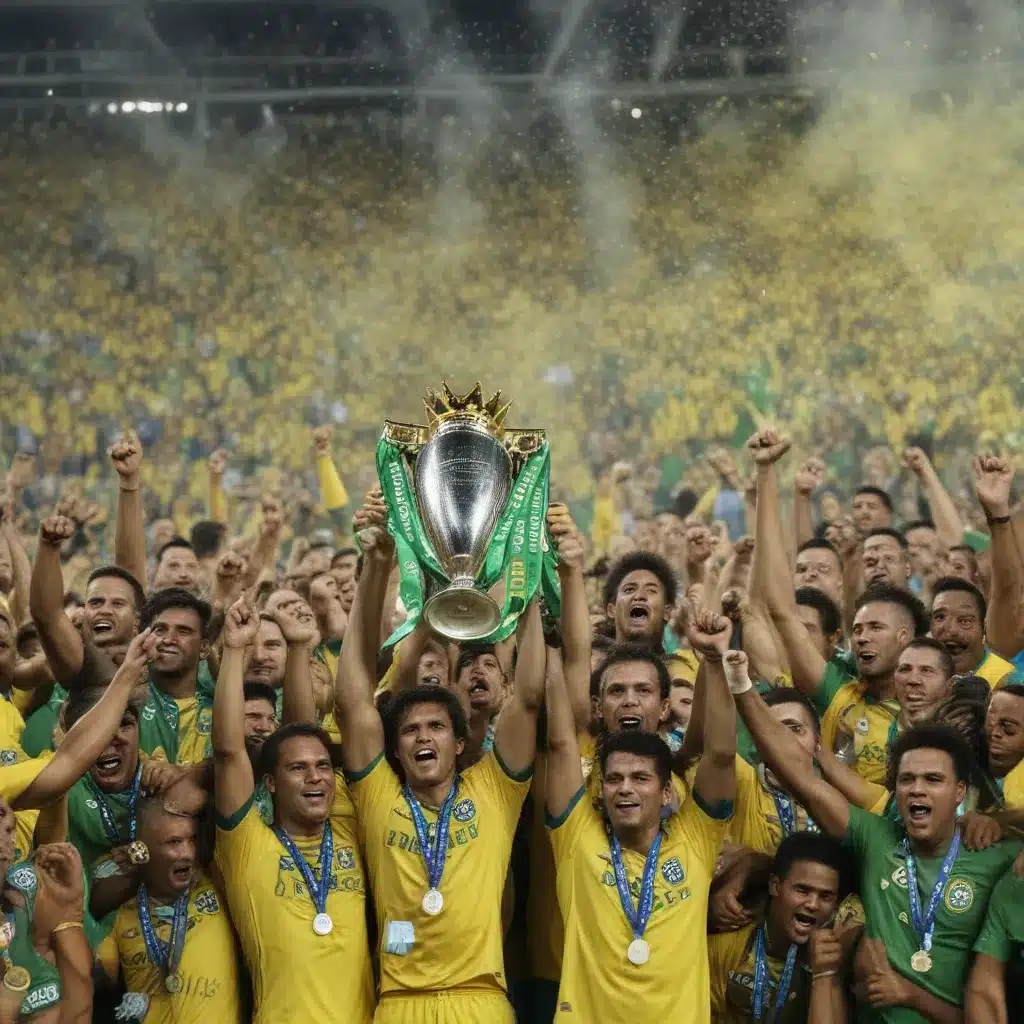
Club Finances and Revenue Streams
Brazilian football clubs have long grappled with the challenge of maintaining financial stability and competitiveness in the global game. One of the key issues they face is their heavy reliance on player sales as a primary source of revenue. With the ever-increasing transfer fees commanded by top Brazilian talents, clubs have become adept at developing world-class players through their renowned youth academies, only to see them snapped up by European powerhouses. This cycle of talent drain can make it difficult for Brazilian clubs to build sustainable squads and compete for domestic and continental titles.
Another significant hurdle is the state of stadium infrastructure across the country. Many clubs still play in ageing, poorly maintained arenas that fail to generate substantial matchday revenues. The lack of modern, purpose-built stadiums equipped with premium hospitality and commercial facilities hampers their ability to capitalise on the immense passion of Brazilian football fans. Efforts to modernise and renovate stadiums have been sporadic, often hindered by political and financial constraints.
Securing lucrative sponsorship and broadcast deals has also proven challenging for Brazilian clubs, especially when compared to their European counterparts. The fragmented nature of the domestic media landscape and the difficulties in negotiating favourable terms have limited the clubs’ ability to maximise their commercial potential. This has further widened the gap between Brazilian teams and the elite clubs in Europe, where television and sponsorship revenues dwarf those available in the local market.
Club Management and Governance
The ownership and governance structures of Brazilian football clubs have long been a source of concern. Many clubs are still run as non-profit organisations, often led by politically appointed presidents or influential individuals with limited business acumen. This can result in a lack of long-term strategic planning, poor decision-making, and a disconnect between the club’s ambitions and the needs of the modern game.
Efforts to professionalise club management and introduce more transparent, accountable decision-making processes have been gradual and uneven. The introduction of new ownership models, such as the emergence of private investment and the participation of fan-owned cooperatives, has the potential to transform the landscape, but progress has been slow.
The absence of robust governance frameworks and the prevalence of political interference in club affairs have also contributed to a perception of a lack of transparency and accountability. This can undermine fan trust, hinder the ability to attract external investment, and create an environment where short-term decision-making often takes precedence over long-term sustainability.
Player Development Challenges
One of the enduring strengths of Brazilian football has been its ability to consistently produce world-class talent through its renowned youth academies. However, the modern game has presented new challenges in retaining and developing these young stars.
The allure of lucrative transfers to European clubs, combined with the pressure to generate revenue through player sales, has made it increasingly difficult for Brazilian clubs to hold onto their most promising youngsters. This talent drain can disrupt the continuity of squads and undermine the long-term development of players within the domestic system.
Adapting to the evolving demands of the global transfer market, with its complex regulations and financial mechanisms, has also proven to be a significant challenge for many Brazilian clubs. Navigating the complexities of player contracts, release clauses, and the intricate web of player representation can be a daunting task, often leaving clubs vulnerable to exploitation or unfavourable deals.
Moreover, the investment required to maintain world-class youth development programs and state-of-the-art training facilities can be a significant financial burden for many clubs, particularly those with limited resources. Striking a balance between nurturing homegrown talent and generating revenue through player sales remains an ongoing challenge.
Regulatory and Legislative Factors
The Brazilian football ecosystem is heavily influenced by a range of regulatory and legislative factors, which can often create additional obstacles for clubs.
The country’s complex tax system, with its high tax burdens, can hinder the financial viability of clubs and limit their ability to reinvest in infrastructure, player development, and squad-building. The lack of harmonised and consistent financial regulations across different state and national leagues further complicates the landscape, making it difficult for clubs to operate efficiently and plan for the long term.
Player transfer rules and regulations, including the intricate system of third-party ownership and player representation, have also been a source of concern. The need to navigate this complex web of rules and ensure compliance can divert valuable resources away from core football operations.
The collective bargaining agreements between clubs, players, and their representatives are another area that requires careful navigation. Striking a balance between player welfare, fair compensation, and the financial sustainability of clubs can be a delicate and often contentious process, with the potential to disrupt on-field performance and squad cohesion.
Conclusion
The challenges facing Brazilian football clubs in the modern era are multifaceted and intertwined. From the reliance on player sales and the need to modernise stadium infrastructure to the complexities of club management and the regulatory environment, these clubs must navigate a rapidly evolving landscape to remain competitive and financially viable.
However, the passion, tradition, and enduring talent of Brazilian football provide a solid foundation upon which clubs can build. By embracing innovative ownership models, investing in sustainable revenue streams, and fostering transparent and accountable governance, Brazilian clubs can unlock their full potential and cement their status as global powerhouses in the beautiful game. The journey may be arduous, but the rewards of a thriving, prosperous Brazilian football ecosystem will undoubtedly be worth the effort.
As the nation’s clubs continue to evolve and adapt, the future of Brazilian football remains bright, filled with the promise of continued excellence and the unwavering devotion of its legions of passionate supporters. Through the challenges and triumphs, the unique identity and captivating style of Brazilian football will endure, captivating audiences around the world for generations to come.

